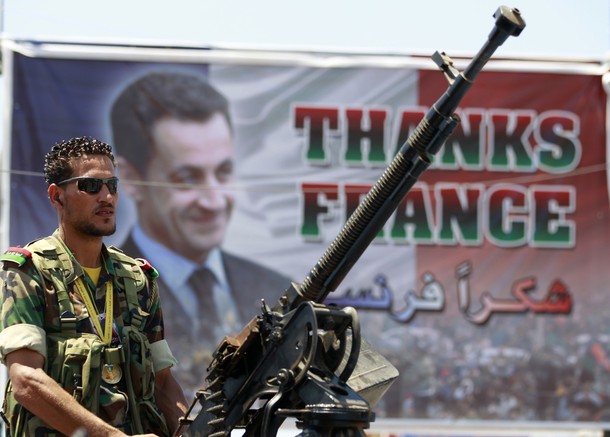
From Michael Hayden, CNN: Gadhafi’s apparent execution after he was captured, on top of the still unexplained murder of the anti-Gadhafi forces’ commander Abdel Fattah Younis three months ago, highlights the chaos and infighting that still exist in Libya and the need to help the Libyans build a viable state.
There is more than altruistic international good citizenship involved here. If Libya is left to its own devices, it is not difficult to conceive of it becoming Somalia on the Mediterranean, an ungoverned space threatening the heart of Europe as well as critical international lines of communication. We have already begun to fret over the loss of control of thousands of man-portable surface-to-air missiles. These are reasons enough to stay engaged.
There are other effects from this week’s success that will also need to be managed. NATO stretched the United Nations’ mandate to "protect civilians" as far as legally possible (about as far as we domestically stretched the definition of "not war"), actively isolated portions of the battlefield to ensure local advantage to the anti-Gadhafi fighters, and conducted what at times looked like close air support — integrating NATO airpower with the fire and movement of their ground forces. What impact will being the air force for the National Transitional Council’s fighters have on Security Council members when next they face a question of "protecting" civilian populations?
The Libyan success will also have to be managed within NATO. It was American intelligence, surveillance, reconnaissance, defense suppression, electronic warfare, refueling and precision weapons that kept the alliance in the game. Will the lesson be that Europeans will have to do more in the future? Or did the Libyan adventure teach them that current levels of investment are "good enough?" It’s not an idle question, as many seem to already be crowding around the exits in Afghanistan. (photo: Reuters)
Image: reuters%2010%2025%2011%20rebel%20Sarkozy%20poster.jpg
